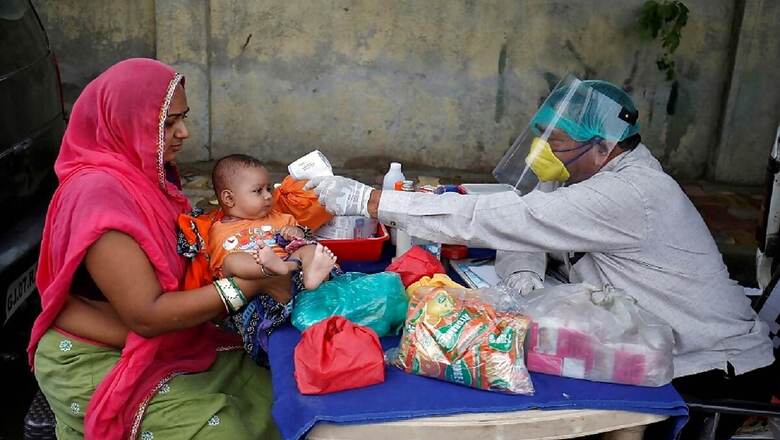
views
The World Health Organisation (WHO) has published a first indicative survey on the impact of COVID-19 on health systems based on reports from 105 countries. Data collected from five regions between from March to June 2020 illustrate that almost every country (90%) experienced disruption in its health services, with low- and middle-income countries reporting the greatest difficulties.
Most countries reported that many routine and elective services have been suspended, while critical care such as cancer screening and treatment and HIV therapy — has seen high-risk interruptions in low-income countries.
“The survey shines a light on the cracks in our health systems, but it also serves to inform new strategies to improve healthcare provision during the pandemic and beyond,” said Dr Tedros Adhanom Ghebreyesus, WHO Director-General.
“COVID-19 should be a lesson to all countries that health is not an ‘either-or’ equation. We must better prepare for emergencies but also keep investing in health systems that fully respond to people’s needs throughout the life course,” he said.
The report found that services have been hit across the board. The most frequently disrupted areas reported included routine immunisation – outreach services (70%) and facility-based services (61%), non-communicable diseases diagnosis and treatment (69%), family planning and contraception (68%), treatment for mental health disorders (61%), cancer diagnosis and treatment (55%).
Nations also reported disruptions in malaria diagnosis and treatment (46%), tuberculosis case detection and treatment (42%) and antiretroviral treatment (32%). While some areas of healthcare, such as dental care and rehabilitation, may have been deliberately suspended in line with government protocols, the disruption of many of the other services is expected to have harmful effects on population health in the short- medium- and long-term.
Potentially life-saving emergency services were disrupted in almost a quarter of responding countries. Disruptions to 24-hour emergency room services for example were affected in 22% countries, urgent blood transfusions were disrupted in 23% countries, while emergency surgery was affected in 19% countries.
Disruption were due to a mix of supply and demand side factors with 76% countries reporting reductions in outpatient care attendance due to lower demand and other factors such as lockdowns and financial difficulties.
The most commonly reported factor on the supply side was cancellation of elective services (66%). Other factors reported by countries included staff redeployment to provide COVID-19 relief, unavailability of services due to closings, and interruptions in the supply of medical equipment and health products.
The disruptions have been sharp in India as well. Data recently released by the National Health Mission shows that immunisations, maternal and child health interventions, treatment for critical ailments and diagnostics, among others were all impacted severely during the lockdown period of April.
The worst hit have been immunisation programmes — a 64% dip in April when the country was seeing a surge in cases, in comparison with January when the epidemic had just began. BCG vaccinations that provide protection against tuberculosis and is an important constituent of India’s National Immunisation Programme were not given to a million children who were due to receive the shot.
Even oral polio vaccine drops were missed by over 6 lakh infants. Pentavalent vaccination dropped 68% in April as against January 2020. It provides protection against meningitis, pneumonia, whooping cough, tetanus, hepatitis B and diphtheria. Another 69% children missed their Rotavirus vaccination in April 2020 versus January 2020, while 72% children missed their Measles, Mumps, Rubella (MMR) vaccination in April 2020 versus January 2020.
Critical OPD services were also hit in India. OPD services for diabetes and hypertension, the two main contributors to the non-communicable disease burden in India, were hit. Services for critical ailments COPD, asthma, respiratory infections and tuberculosis fell more than 60% in April in comparison to January and so did institutional deliveries, by 35%. Overall, lab tests also fell by 63% and so did other significant diagnostics like HIV tests that also saw a fall by over 65%.















Comments
0 comment